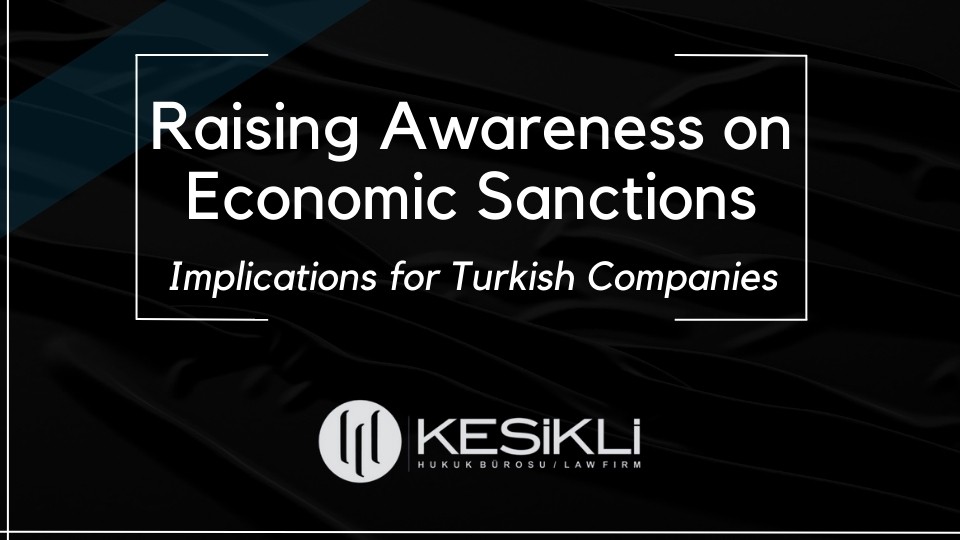As a fast-growing economy in a strategically vital locale between Europe and the Middle East, a robust business community and a young population — Turkey offers many opportunities for foreign investors.
Too, in recent months, the Turkish Government has announced a renewed commitment to reform to attract more foreign investment – redoubling a long-standing tradition of support for foreign investors.
President Erdogan, for example, recently explained that Turkey was entering a new period in the economy and that the judiciary and the parliament will prioritize a reform package to support foreign investors in the new year.
In the first 8 months of 2020 Turkey saw $3.9 Billion USD in foreign investment, of which $3.2 Billion USD was invested in the services sector, with the industry sector receiving $764 Million USD and the agricultural sector receiving $2 Million USD. Prime sources of this investment were Italy ($966 million), the United States ($745 million), the UK ($439 million), the Netherlands ($354 million), Luxembourg ($231 million), Germany ($229 million), Ireland ($149 million) and Norway ($104 million).
Turkey offers many benefits for foreign investors
Low Cost of Doing Business
Compared to some economies in Europe, Turkey offers foreign investors a low-operating cost. Additionally, Turkey benefits from an annual robust number of well-qualified university graduates – and a lower labor cost versus its European neighbors. Too, local suppliers in Turkey are known for providing high quality goods and services – at a comparatively low cost.
Strong Consumer Spending
Turkey enjoys strong consumer spending driven in large part by a large, working, younger population – who often follow trends and regularly purchase new branded products and services. Hence, foreign business with a well-thought-out local strategy, can appeal to consumers in Turkey and generate new revenue and profit from a presence in the market.
Excellent Local Manufacturing
Turkey possessive a wealth of local manufacturing strength well-positioned to help foreign businesses create products for domestic distribution or foreign export. Often, Turkish manufacturers are well-placed to produce smaller orders – which makes them uniquely suited to provide help to medium-sized or smaller foreign businesses that establish operations in Turkey.
Tax Benefits of Operating in the Free Zones
The earnings of manufacturer users which are generated through the sale of goods they produce in free zones are exempt from income or corporate tax – until the end of the tax year including the date Turkey becomes a full EU member.
Additionally, workers employed by exporters operating in the free zones and which export at least 85% of the FOB value of the good they produce – are exempt from income tax. The Council of Ministers, however, can reduce this rate by 50%. Further, transactions and arranged documents related to activities by manufacturers in the zones – are exempt from stamp duties and fees. The income and corporate tax exemptions continue during the validity period of the Operating License where the free zone users obtained those licenses (other than production) before 6/2/2004. However, those which obtained the license after 6/2/2004 – do not enjoy income or corporate tax exemption.
Export access to the European Union
Turkey and the EU are connected via a Customs Union Agreement, which was established in 1995. This agreement provides foreign business that manufacture in Turkey with access to lucrative markets for goods manufactured here.
Notably, in 2019 Turkey was the EU’s 5th largest trading partner. The EU is Turkey’s leading import and export partner (5th overall). Turkish exports to the EU consist primarily of equipment, textiles, and machinery.
Turkey’s unique locale and market access to the EU, therefore, makes it an ideal location for foreign business to establish EU-focused export operations from a base in Turkey. While just under half of Turkey’s exports go to the EU, other leading export markets in the Middle East – make Turkey an even more highly desirable locale for any business seeking a regional presence.
Turkish Government Incentives
The Turkish Government encourages foreign investment with a reduction in investment-related costs and a more friendly environment for that investment. Foreign investors who obtain a Turkish Investment Incentive Certificate (IIC) enjoy VAT and custom duty exemption, tax deduction, support for social security premiums, interest rates, land allocation, VAT refund and support for income tax withholding.
Turkish Citizenship
Since 2017, foreign investors, by establishing a business in Turkey, can obtain Turkish citizenship. The granting of citizenship requires capital investment minimums of at least $500,000 USD, or the creation of a local company where at least 50 people are employed, or the purchase of immovable property with $250,000 USD, or maintaining a $500,000 USD deposit in a Turkish bank for at least 3 years, or purchasing and retention — for at least 3 years — of government debt securities of at least $500,000 USD.
Looking forward
As we’ve enumerated above – Turkey offers several substantial benefits to business investors. We help business enter and establish operations in Turkey with comprehensive, turn-key legal and advisory services. From start to finish we can help you strategically navigate local opportunities and challenges, find partners, secure regulatory and business concessions, and maximize return. For more information you can reach us at info@kesikli.com.
@Kesikli Law Firm
Let's Get Connected!



